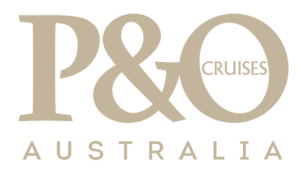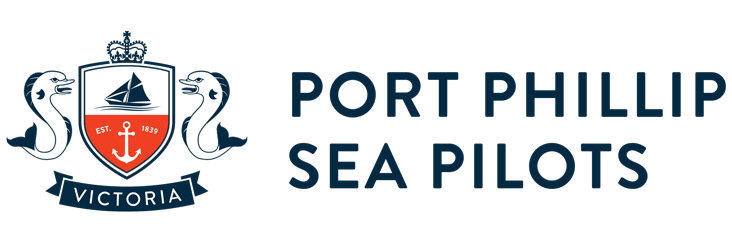A proven set of SKILLS, SYSTEMS & INFRASTRUCTURE.
Port Phillip Sea Pilots handle ships of all sizes and levels of sophistication, into all wharves and anchorages, and we do it with an unparalleled level of expertise and experience.
Whether it be deeply-laden aframax tankers into Geelong, giant oil rigs into Western Port or Bosphorus Max container ships into Melbourne, vessel owners and operators know Port Phillip Sea Pilots have the skills and expertise to competently and confidently guide their vessels safely in and out of port.
We take an inherently positive approach to minimising costs to customers by maintaining and evolving efficient operational practices.
We are committed to maximising flexibility by accommodating changes due to weather conditions, bay and river traffic, terminal and port delays, and Vessel Traffic Services requirements.
On-Demand Service
PPSP since its inception in 1839 has proudly provided an on-demand service 24/7, 365 days of the year for the ports of Melbourne, Geelong and Western Port.
To maintain this service, we have developed an operating system that is unique to Australia which ensures your vessels’ safety and provides prompt movement through Victorian harbours.
This system features strategic infrastructure and professional services including:
Operations Centre
Our Operations Centre is located at the Queenscliff Pilot Station and is manned around-the-clock by experienced Pilot Despatch Officers (PDOs). The facility has an emergency power supply, enables on-the-spot marine traffic- and weather-monitoring to guide safe and efficient vessel movements. Our PDOs perform the following functions:
Communication with ships to advise boarding arrangements and sequencing of vessels arriving at the pilot boarding ground.
Point of contact for agents and customers.
Management of the pilot roster in accordance with safe working rules.
Assist Vessel Traffic Services (VTS) with efficient ship movements through Port Phillip Heads.
Optimise launch transfers and travel arrangements to manage pilot workloads.
Boat Depot
A key component of on-demand service is reliable, dependable hardware. Our Boat Depot at Queenscliff Harbour is a fully-equipped workshop facility ensuring upkeep of our pilot launches to the highest standard. At the Boat Depot PPSP has four full-time mechanics and general hands who maintain up to six launches that operate throughout Victoria.
Fleet Redundancy
As with our pilots, our launch crews work to a 24-hour roster as a crucial component of our on-demand service.
PPSP maintains two state-of-the-art ORC pilot launches at Queenscliff Harbour, one in operation and the other on stand-by. In event of a breakdown, the back-up launch is in a state of readiness to avoid any delay to your shipping schedule.
Other ORC launches are based at Melbourne and Western Port, which also share a backup vessel strategically positioned at Queenscliff Harbour (should it be required).
Pilot Pool & Rostering
PPSP maintain a pool of 20+ licenced pilots to ensure service is always available to meet the peaks and troughs of shipping movements.
Our rostering system and working rules have been designed to create a fair work place as well as minimise any fatigue-related issues. The pilot roster structure is specifically designed to accommodate an on-demand service for all vessels, irrespective of tonnage.
Jetty Transfers
PPSP has ideally-located infrastructure at Queenscliff to facilitate the swift transfers of pilots to and from ships, as well as minimise fuel consumption of launches and clients’ vessels.
Safety & Accreditation
Safety First
PPSP has set the highest pilotage standards in Victoria throughout its 180+ years and has led Australia and the world in best-practice development.
Safety Management System
PPSP was the first pilotage organisation in Australia to develop a Quality Assurance System, which later evolved into a Pilotage Safety Management System (PSMS).
The PSMS outlines procedures for all of our working pilots based on the cumulative knowledge and experience gained since 1839. Its purpose is to promote best practice and it mandates pilot adherence in all but exceptional or extreme circumstances. Pilot compliance with the system is monitored and audited.
Accreditation
PPSP voluntarily maintains International Standards Organisation (ISO) accreditation in order to achieve a high level of business management practices.
We were one of the first pilotage companies in the world to successfully achieve accreditation for the International Standard for Safety and Quality Assurance.
PPSP is externally audited annually by an independent body to maintain its international accreditation. As well, we conduct multiple internal audits of all operational areas as part of our QA & SMS.
Accreditation held:
ISO 9001: 2015 Quality Assurance Standard
OHSAS 18001: 2007 Occupational Health & Safety Standard.
ISO 14001: 2015 Environmental Management Standard
ISM (Safe Operation of Ships Standard)
Fatigue Management
Pilots record working hours electronically into a custom internationally-recognised FAID (Fatigue Assessment by InterDynamics) programme. Should a pilot feel the effects of fatigue, they have the option of taking a break between ship movements.
Training & Certification
All pilots are licensed by Marine Safety Victoria, under the authority of Victorian Marine Act, 1988.
The minimum required training path way is set and regulated by Transport Safety Victoria. PPSP uses this standard as a bare minimum and undertakes Continual Professional Development (CPD) in areas including:
• Bridge Resource Management
• Human Factors Training
• Electronic Chart Display Information Systems
• Manned model training
• Restricted Visibility Training
• Incident investigation courses
• Centre lead towing simulations
• DUKC Training for deep draft vessels
• Portable Pilotage Unit, uses and limitations
Planning & Management
Bridge Resource Management (BRM)
Keeping the Master and bridge team informed is essential to a well-executed plan.
BRM planning starts as soon as the pilot steps on-board ship. A written, channel-transit and port-specific plan is presented to and agreed by the bridge team to ensure everyone is fully aware of the passage requirements.
All pilots attend BRM training every five years to ensure the latest industry techniques are utilised. Next-generation BRM focuses on human factors, error management, systems approach, situational awareness, challenge and response, workload and briefings.
“Partnering with PPSP to enhance existing navigational practises has produced a systems-based approach focusing on the “shared mental model.”
This system equips our bridge officers with information needed for maximum situational awareness to perform to the highest standards expected from P&O Cruises, Australia. It’s been great working with PPSP’s safety committee, who share our vision” (P&O Cruises, Australia).

Route Planning
PPSP has developed multiple routes for various vessel types transiting through port waters. Routes vary due to vessel type and draft. More details regarding our routes can be found at the Ports section of our website.
Dynamic Under Keel Clearance (DUKC)
PPSP in co-operation with OMC International assisted in the development of a DUKC system for the South Channel, Melbourne and Geelong channels in order to maximise freight capacity for container ships, oil tankers and grain ships.
PPSP combine this proprietary DUKC® technology with our ship specific passage plans to safely navigate deep draft vessels, which include the largest container vessels to call to Australian ports as well as inbound laden tankers, resulting in increased economic efficiencies for business in the state of Victoria.
“It was a pleasure collaborating with Port Phillip Sea Pilots and drawing on their experience when designing a DUKC® system for the Port of Melbourne and Geelong. This system allows for up to an additional 70cm of draft, equating to approximately 20,000 MT more cargo per ship” (OMC International)

Portable Pilotage Units (PPU)
PPSP requires the use of PPUs for all movements to improve situational awareness, aid decision-making and provide recordings for training and investigation purposes.
The hardware devices and navigation software integrate with electronic charts to provide the pilot’s laptop with accurate information including position, velocity, heading and rate of turn, regarding the movement of the piloted vessel as well as other vessels nearby.
Pilots have access to in-house technical support to assist with any problems. PPUs’ associated hardware and software are kept up to date via bi-annual audits.
All-Weather Operation
PPSP is proud to offer an On-Demand Service, and as such must ensure it can do so safely.
Safety of our pilots in adverse weather conditions is paramount. In recent years PPSP has commissioned several ORC type launches, designed by naval architect Pantocarene to operate safely in unfavourable sea conditions. The level of innovation and investment in this part of our operation has been so successful that the launches we use today have been adopted for pilotage Australia-wide.
These launches are the essential infrastructure needed and demonstrate our continued commitment to an On-Demand Service that delivers the best possible outcome for ship operators and port stakeholders. Importantly, our transfer method is not limited by atmospheric conditions such as fog.
Occasionally, sea conditions do escalate to extreme, and the decision to abort a pilot transfer can be made, via an internal assessment form, completed by the Launch Master.
Additionally, Harbour Master’s Directions (HMD) are complied with when it comes to berthing limits for wind/weather in ports and tidal effects at Port Phillip Heads.
Collaboration
At PPSP we encourage collaboration with clients, partners and industry stakeholders to ensure the highest level of safety, efficiency and optimal service outcomes.
That’s why, when the world’s leading container lines such as Maersk, MSC and ANL/CMA CGM, or major shippers such as ExxonMobil, Viva Energy and GrainCorp, approach the Port of Melbourne, Geelong Port, the Victorian Ports Corporation and the Victorian Regional Channels Authority seeking access for bigger ships to more cost-effectively carry larger cargoes, these bodies immediately turn to PPSP to tap our expertise and experience.
Collaborative work has been undertaken on projects such port development, channel deepening, simulations for larger vessels, as well as oil rig tows and float-offs.
A recent project with P&O Australia has created an open, transparent means for route-planning and execution. We hope to discuss these options further with other customers within the shipping spectrum as the system develops.
PPSP maintains a close relationship with other port services by way of regular thought-sharing and monthly port meetings.
“By working together with PPSP we expanded our Melbourne crew’s capabilities into headline towage, facilitating the means to maneuverer larger ships in Swanson Dock. A professional team of pilots willing to help achieve our goal of making marine operations safer and more efficient everywhere.”


